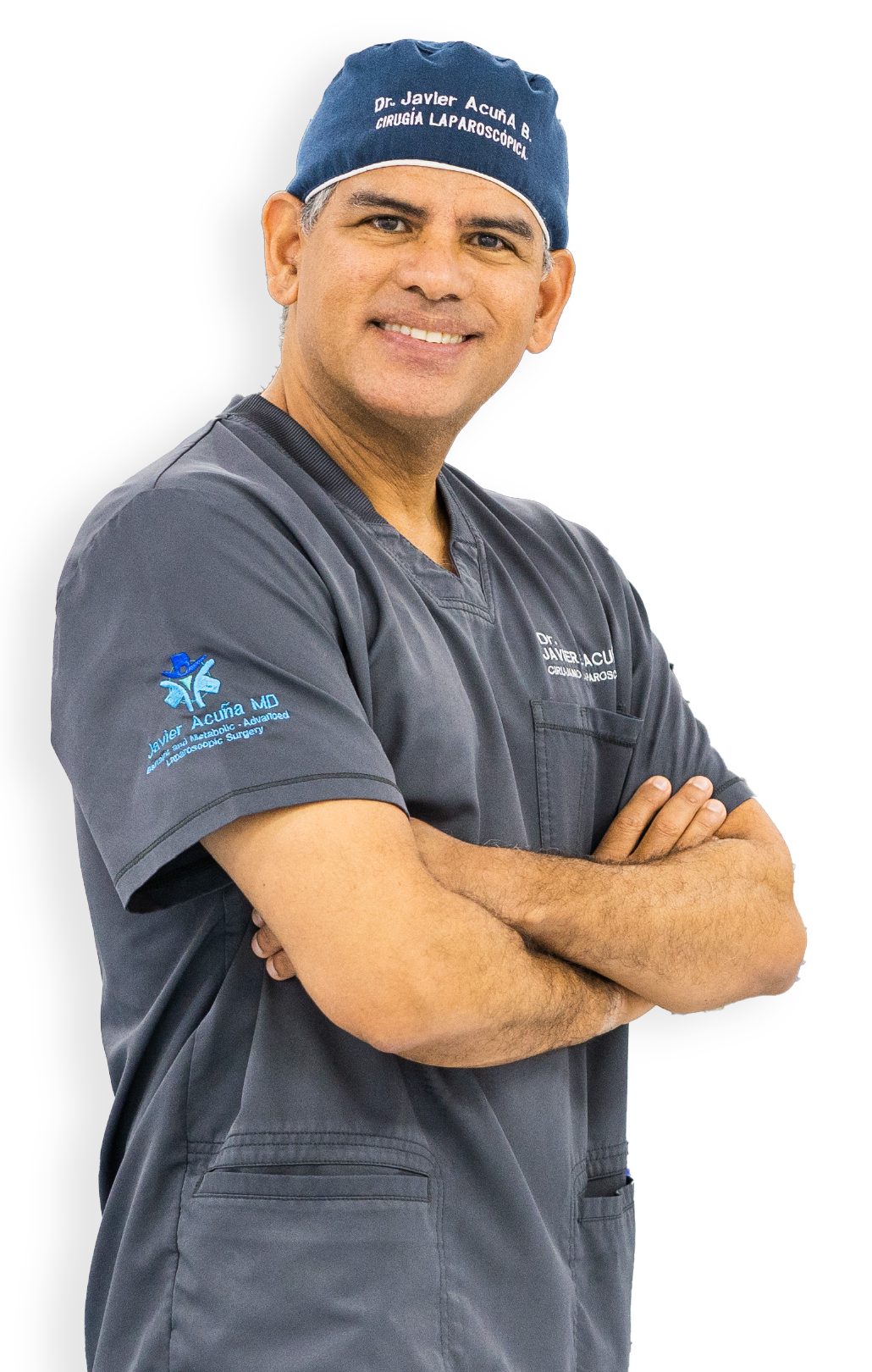What is the gastric sleeve?
The gastric sleeve involves reducing the size of the stomach, typically by around 80% of its original size. The remaining 20% is sufficient to effectively promote weight loss without causing malnutrition in the patient.
In addition to the mechanical effect described, the gastric sleeve has a hormonal action. The part of the stomach that is removed or excised produces a hormone called Ghrelin, which is associated with hunger stimulation.
By removing this part of the stomach, blood levels of Ghrelin decrease, leading to reduced hunger and, consequently, weight loss.


In addition to the mechanical effect described, the gastric sleeve has a hormonal action. The part of the stomach that is removed or excised produces a hormone called Ghrelin, which is associated with hunger stimulation.
By removing this part of the stomach, blood levels of Ghrelin decrease, leading to reduced hunger and, consequently, weight loss.
Gastric sleeve surgery is performed under general anesthesia laparoscopically.
through four or five small incisions in the abdomen, resulting in less postoperative pain and a quick recovery.








The recovery from bariatric surgery is quite rapid and straightforward. On the day of surgery, in the immediate postoperative period, the patient can walk and start oral intake with a liquid diet. For gastric sleeve surgery, the patient stays overnight in the hospital and is discharged the next day.
No special care is required for this type of surgery, only recommended practices include wound cleaning with water and soap, avoiding strenuous activities, staying active at home, and strictly following nutritional recommendations provided by the nutrition team.
Between the fourth and fifth days after surgery, the patient can return to their city of residence (for non-residents of Cartagena) or resume their daily activities, including work, except for strenuous activities.
The patient is discharged with three medications: pain relievers, antacids, and an anticoagulant. All patients require protein, vitamin, and mineral supplements for six to twelve months post-surgery, with the duration determined by the treating physician and nutritionist.
Regarding physical activity and sports, brisk walks of one hour five times a week are recommended after fifteen days, and resistance and strength exercises can be initiated after thirty days.
Regarding the diet, it begins immediately postoperatively with clear liquids for three days, followed by a liquid diet for an additional week, and then a soft diet for approximately ten days. Solid food consumption can be resumed around forty days, guided by the nutrition team.
What are the complications of the Gastric Sleeve?
Complications of the gastric sleeve are very rare. Patients may experience intra-abdominal or abdominal wall bleeding or infection, gastric fistulas or strictures.
Other potential complications include pulmonary embolism, blood clots in the lower or abdominal blood vessels, mucus plug in the lungs, allergies, etc.
All of these complications are preventable with clear bariatric patient management protocols, optimal clinic conditions, and procedures performed by specialized surgeons.
